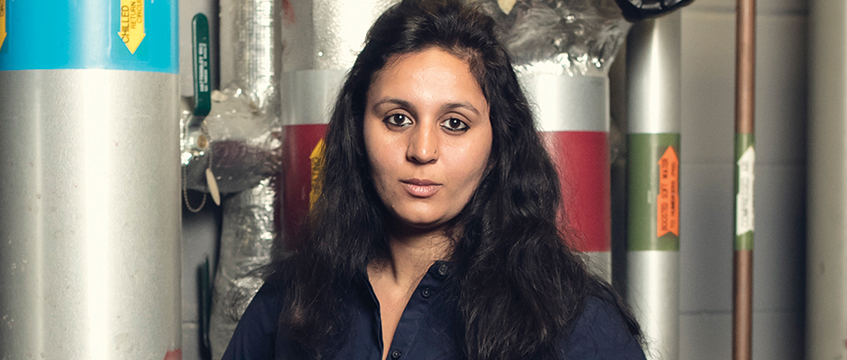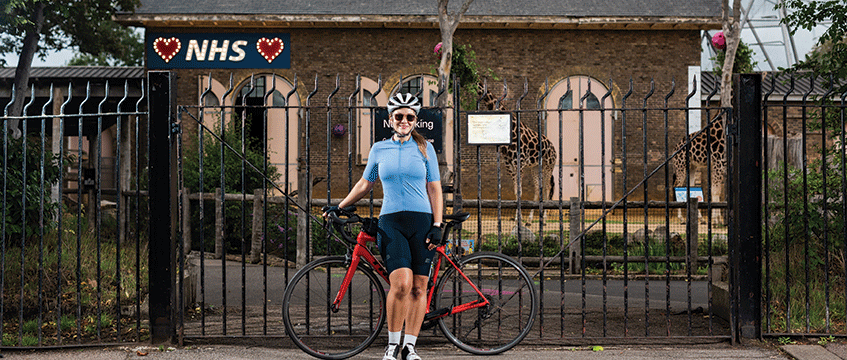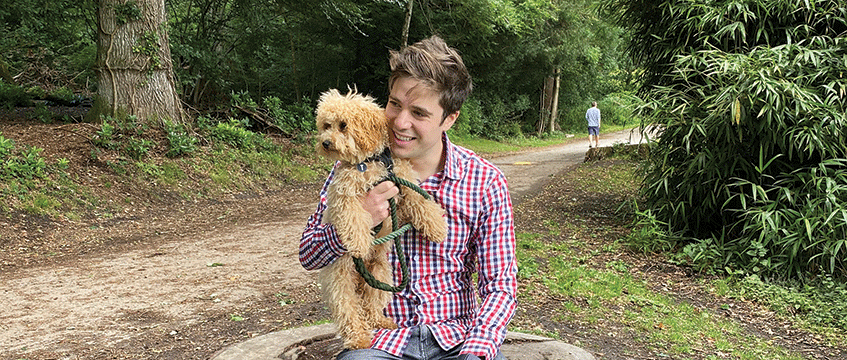Over the past five years, EG has been engaging with and highlighting some of the brightest next big things in the built environment. Through our Rising Stars awards project and Future Leaders training programme we have amassed an alumnus of close to 100 potential new leaders of real estate. After a year like never before, EG asked the next generation three questions about the future of the industry:
- What the outlook for real estate in 2021 and beyond is
- What will be the biggest catalyst for change in the sector
- Who (or what) will be the most influential in real estate in the next five years
Here is what they had to say. A unique look into how to future-proof your business for success.
Tushar Agarwal, chief executive, Hubble

OUTLOOK
2020 was the year that changed everything about property. Everything. All the assumptions we had about where we work, live, holiday, spend our free time – all these assumptions went out the window. Those who think 2021 will just look like 2019 are dead wrong.
For the office sector in particular, hybrid working is not going away. This is just the beginning of hybrid working and 2021 will be the year in which every organisation and individual starts to configure their perfect version of hybrid working.
CATALYST
The workplace has been the centre of gravity for most of our lives, since the dawn of humanity. The reduction in the gravitational pull of the office will have absolutely seismic effects across all of real estate. If we don’t need to live near where we work, where should we live now and why? That question will have huge implications for every vertical in real estate.
MOST INFLUENTIAL
Those who solve hybrid working. WeWork may well see a huge revival, as the thesis it wrote 10 years ago starts to become very real.
Tripty Arya, founder & chief executive, Travtus

OUTLOOK
I think 2021 will be challenging for some asset classes and will create demand for others. Multifamily and industrial assets will see an increase in allocation from institutional investors. New operators will be seeded to react to the shock of 2020. These will see a new crop of talent and skills being utilised. Offices will return but in a new physical and psychological role. They won’t be the crown jewel they were. Retail is dead.
CATALYST
I think the change in people’s way of working and also the regulations that will react to the changing job market will shift the risk profiles of many asset classes. The industry will have to react if there is a change in its investment risk profile.
MOST INFLUENTIAL
The disruptors who have no real estate background and are entering the industry. The people who are going to break the idea that the industry knows itself.
Sarah Bissessar, senior estimator, Willmott Dixon Interiors

OUTLOOK
Prioritising economic growth and recovery is going to be key as the economy was scarred during 2020 and construction will be at the heart of this. With the ongoing challenges of Covid-19 and Brexit, the government will be keen to demonstrate its commitments to “level-up” across the country and doing this will likely involve an increase in spending on infrastructure, defence, prisons, education and healthcare facilities; either directly or via attracting investment as outlined in the chancellor’s Spending Review 2020. Many projects were paused or put on hold indefinitely last year as private sector investment often correlates to prevailing levels of uncertainty.
However, as employers across a range of industries look to offer workforces a combination of home and office-based working, many organisations will need to reimagine how to use their once-busy and full offices for the long term, requiring creative solutions and refurbishments, which may bring some energy back. Striking the balance between public and private sector projects for each contractor is going to be key to weathering the next season and coming out in a strong position.
CATALYST
Construction and real estate are major employers in the UK and we must use this moment in our history to strengthen our commitment to being flexible and inclusive workplaces. This will require a considered approach in how we recruit, induct, train and develop our teams for the next decade. It will also require an ongoing shift in mindset at all levels of the industry to make this work.
MOST INFLUENTIAL
The next generation of apprentices and leaders coming into our businesses will be key in supporting and leading the charge on issues such as sustainability, adopting new tech solutions, further embracing diversity and engaging with agile working. Sustainability issues, in particular, have seen a step change in how the general population is thinking about the planet and those who place this at the forefront of their business will be in a position to attract the best of these new leaders and apprentices into the industry.
Richard Brazier, senior acquisitions manager, The Office Group

OUTLOOK
Without stating the obvious, flexibility will become key to the performance of the office sector in the next few years. Landlords who are able to adapt their operating models quickly to accommodate what tenants really want in a post-Covid world will be the real winners, while those who are holding on to the prospect of leasing their entire portfolios on a 20-year FRI basis will ultimately become obsolete.
CATALYST
Proptech companies have been trying to assert their influence on the office sector for years but the events of the past 12 months have provided a decade’s worth of advancement in terms of how owners are thinking about the impact of technology on their portfolios.
The significance of technology on the underlying real estate will make price-per-square-foot occupiers pay much less important going forwards, and instead, value will be derived from the overall experience and service tenants and their employees are able to extract from their offices, whether they are physically there every day or predominantly working remotely.
MOST INFLUENTIAL
The tech behemoths. Over the past few years, they have led to the boom of the logistics and data centre sectors, been the primary catalyst to the demise of the retail sector and helped change the way we think about the way we live and work. I think it will be fascinating to see the impact they have on the wider real estate sector.
Lee Butz, founder and chief executive, District Technologies

OUTLOOK
In my opinion the office isn’t dead, however, commercial real estate providers will need an increased focus on experience, particularly in central city locations, to convince tenants it’s worth being there. I believe we’ll see work become more hybridised, with companies decentralising from their typical large city centre HQ and opt for a hub-and-spoke model, where they will have smaller regional office locations. Flex is here to stay and hybrid working will be the new normal.
CATALYST
Of course it’s impossible to not mention Covid-19 as the biggest catalyst for change. Although, I do believe that Covid only accelerated trends to work that we predicted would happen gradually without it. These changes to the way we work – remote and hybridised working – have had a knock-on effect to CRE. The way we need office space has fundamentally changed as a result. Not only down to where geographically, but down to why in terms of what tasks we want to use the space for, and how long – in terms of hours per day or week.
MOST INFLUENTIAL
The most powerful section in real estate worth getting to grips with will be the proptech sector. Particularly as we move into a post-Covid world, CRE providers will need to adopt the right technology to offer occupiers the best solutions that support hybridised working.
Joseph Daniels, chief executive and founder, Project Etopia

OUTLOOK
2021 is the year of net zero, smart construction, connected living and sustainable communities. The real estate industry is going through a shake-up and that’s about getting net zero. Connected net-zero living will become the key driver and change the landscape of the industry forever. It’s very much a go-green or get-left-behind moment.
CATALYST
Climate change emergency and response, with 40% of all C02 coming from the built environment, the net-zero building approach from an embodied and in-operation perspective will be the key impact drivers.
MOST INFLUENTIAL
Local and district councils will have the largest impact, the decisions made at local and regional level to provide sustainability will be the key factor for companies going forward.
Joyeta Das, chief executive and co-founder, Gyana

OUTLOOK
Long-term preparedness for volatility in multiple levels. From prices to location to portfolio construction, the muscle memory of all that happened in 2020 will remain and there will be many fallouts to come in 2021. From not needing offices, to “boring” malls to repurposing community centres – change and infrastructure for change will be vital. Anything that encourages flexibility will be a winner.
CATALYST
IoT, data driveness, Brexit and Covid, new needs of the mobile inhabitants, health-related asks.
MOST INFLUENTIAL
AR/VR start-ups will gain more prominence, sustainability leaders will win the main brownie points and opening doors to new ways of thought will be the primary driver of leadership success, as they will open up diversity of thought.
Adina David, director of flexible housing, Greystar

OUTLOOK
Several key trends observed pre-pandemic have been accelerated and in the near to medium term we will see them fully integrated within the real estate industry. Namely, more widespread use of technology across all facets of our lives and changes to how we work, as well as a renewed need for human connection.
2021 will give us the chance to test new ways of building and managing real estate which have the potential to reshape our industry for the better in the long term by seeing real estate as a service and not a yield.
The most successful real estate will be that which blends operations and allows for flexibility in tenure and use as society readjusts to coming together again. We have a chance to be intentional in repositioning or creating places that are fully inclusive to all demographics and that bring people together in new ways. After a year of social isolation for many, the ability to create communities again will be crucial and possible at scale only in cities.
CATALYST
I think climate change will continue to be one of the biggest catalysts for change in our sector as it is the most pressing issue society is facing today. We need to build more sustainably to ensure our buildings last longer and do not have a negative impact on our environment. Modern methods of construction should be supported by local authorities and capital as they can reduce waste and deliver innovative projects and housing quicker.
MOST INFLUENTIAL
Private equity real estate firms will be some of the most powerful groups to watch as they often take more risks, seeking outsized returns, and thus end up supporting innovative ideas that look to disrupt the industry. That innovation will be crucial in the coming decade.
Tom Drogman, co-founder and chief technology officer, Smart Spaces

OUTLOOK
There will be a flight to quality which will drive the gap between traditional/underinvested buildings and smarter/newer/cleaner buildings. I also expect the return to offices to begin in a meaningful way from March as most of our clients are planning for this.
CATALYST
ESG is the perfect vehicle for businesses to drive change and deliver people-centric experiences while effecting sustainability strategies through healthier buildings in operation to the benefit of all. Evidencing building credentials through in-use metrics which support both the landlord and occupier’s ESG policies will become increasingly the focus.
MOST INFLUENTIAL
Technology providers with a proven background on delivering smart buildings at scale. I expect leading companies like Smart Spaces, which can help clients adapt to the new hybrid working model at rapid pace and have comprehensively delivered for numerous funds and global occupiers during 2020, will be a key stakeholder in the success of any new development, refurbishment and occupier workplace strategy over the next five years.
Eden Dwek, head of global expansion, WiredScore

OUTLOOK
2020 has forced us to rethink why people come to the office. Instead of relying on the office as the default place to work, the industry needs to focus on the characteristics that make the office a space that promotes productivity, social interaction and collaboration.
Future offices need to be adaptable and flexible to ensure they deliver what workers want. Whether that be somewhere to focus without distraction, a space to collaborate, or a place with more reliable internet connectivity for accessing documents and making video calls. The concept of the office is here to stay, but what that office looks like in a post-Covid world is another question.
CATALYST
The evolution of mobile connectivity, with the introduction of 5G, will have wide-ranging implications for our industry and the wider built environment. It is set to trigger one of the biggest technology changes since the industrial revolution, touching almost every sector.
It will enable remote surgery, allowing us to move away from centralised hospitals towards community-based healthcare environments. This will improve life expectancy and create new opportunities for later living amenities. It will allow autonomous vehicles to operate, which will change the layout of our streets, with vacant parked cars a thing of the past, and mobility-as-a-service truly realised. And it will enable the development of a new generation of smart buildings, where offices of the future will be able to autonomously provide the optimal conditions for productivity, collaboration and engagement. These are only a handful of examples of how 5G will change how we think about real estate and how we design places in the coming years.
MOST INFLUENTIAL
If data is the new gold, then behavioural scientists are the ones selling the shovels. Data means nothing without appropriate insight analysis driving informed actions. Offices, retail and the wider built environment will continue to evolve at an exponential rate over the coming years. Real estate businesses that are focused on understanding the data they are gathering will be best placed to deliver what users want and stay ahead of the game.
To send feedback, e-mail samantha.mcclary@egi.co.uk or tweet @samanthamcclary or @estatesgazette











